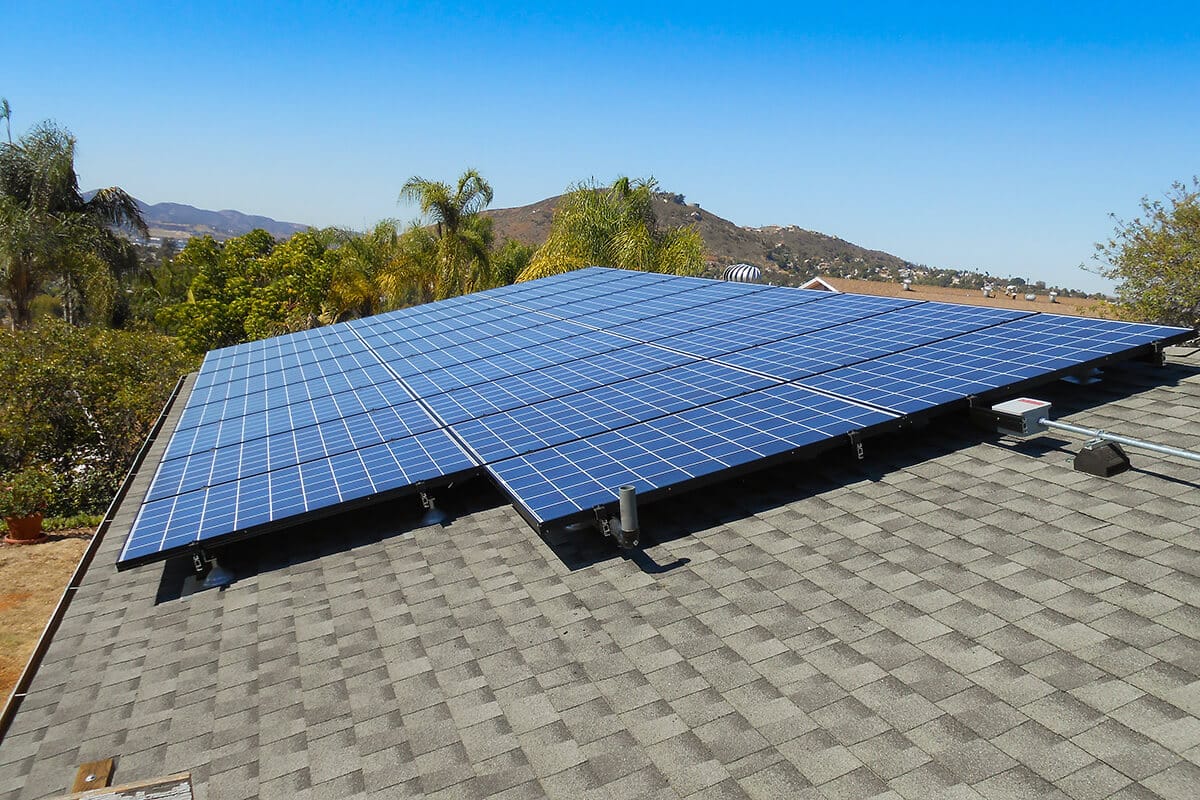Understanding Solar Panel Lifespan: How Long Do Solar Panels Last?


There are a lot of questions that need answers when you're considering a large purchase such as solar panel installation, and knowing how long they will last may be high on your list. Solar panels are a great investment to help offset both your environmental impact and your monthly energy expenses, but it's important to fully understand the implications of their lifespan to make sure you're prepared to incorporate the long-term costs into your budget.
On average, the lifespan of solar panels is about 25-30 years, but this can be affected by variables such as climate or manufacturer. A 2012 study by the National Renewable Energy Laboratory (NREL) discovered that solar panels have a degradation rate of about 0.08% per year, but some premium brands can have rates as low as 0.03%. This means that assuming your panels degrade 0.08% per year, they will operate at approximately 99.2% of their original output after two years of use. Even at the end of their twenty-five-year lifespan, they'll still operate at about 82.5% of the rate at which they operated when first installed.

Even though your solar panels will not completely stop producing electricity at the end of their lifespan, they will start working less efficiently and may no longer produce the amount of energy necessary to power the average American home. However, you can easily plan for this with the warranty provided by your solar panel manufacturer. The warranty will tell you exactly how long your particular brand of solar panel will last in your specific climate.
Causes of solar panel breakdown include UV exposure, weather cycles, and thermal cycling, all of which are natural, unavoidable processes that cause the solar panel cells to break down or degrade, over time. Cheaply made solar panels degrade more quickly as well since the frames are often made from aluminum which can warp when exposed to extreme temperatures, causing pressure on the cells.
Hot environments can cause solar panels to run less efficiently and wear out more quickly simply because overheating causes them to work at a higher rate than normal. However, don't less this discourage you if you live in a hot climate - you might simply need to upgrade your panels a little sooner or consider buying higher quality panels that have a lower degradation rate.
Cold environments reduce the likelihood of your solar panels wearing out due to overheating, but they bring their own risks of damage from snow, hail, and extremely cold temperatures. Make sure your solar panels are installed at an angle that allows even heavy snowfalls to simply melt and slip off since they cannot produce energy when covered in snow - the melting snow also provides the added benefit of cleaning your panels!
Even though solar panels generally require no maintenance due to their sturdy design that doesn't involve any delicate machinery, there are still some things you can do to make sure your investment is running in top condition. Some are easy to do on your own, while others require the assistance of a professional solar panel installer.
First, and most importantly, select a high-quality solar panel installer who can guide you through any potential issues in the years to come. Find an installer that also offers a good warranty - many companies will cover environmental damage and product defect for the first 10 to 12 years, and you'll always want to purchase solar panels that are guaranteed for at least 25 years.
Second, your installer can do annual inspections of your panels and other components such as your solar inverters to make sure everything is in good working order. In between visits, though, it's important to keep the panels free from any type of debris, including dead leaves and bird droppings. You can use a broom or rake to brush off the panels - just be careful to avoid knocking wires loose or otherwise causing damage. Your panels also should be installed away from trees that could drop leaves, branches, and other debris onto the panels.
Third, you can purchase guards to protect your panels from birds, squirrels, and other critters, or buy specially-designed solar panels that discourage critters from coming close. Solar panels make very appealing nesting spots since they're warm to the touch, but this can cause long-term stress and damage to the panels.
Solar panels are undoubtedly a large investment, but the benefits of helping the environment and finding freedom from expensive monthly energy bills are priceless. With some research and a helpful installation company that provides the assistance you need, you'll be ready to enjoy the advantages of your solar panels for years to come.